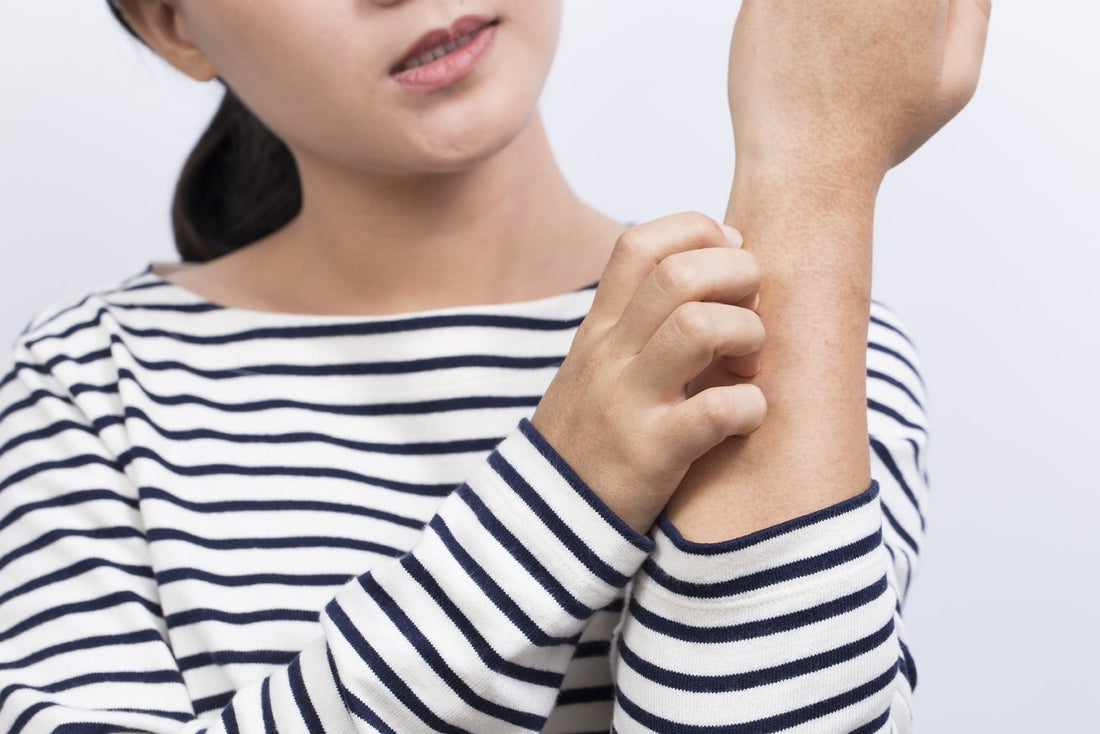The causes are unclear
Why are some of us so prone to eczema? Many studies on atopic eczema (or atopic dermatitis), the most common form of the disease, have tried to uncover the reasons behind the condition. What we know so far is that this chronic ailment, which is generally hereditary, is commonly found in people who also suffer from allergies and asthma. Environmental factors can also trigger flare-ups. However, the exact causes of eczema remain a mystery.A prevalent condition
One-third of the population will suffer from eczema (atopic dermatitis) in their lifetime.
Hand eczema affects one out of ten people.
Hand eczema affects one out of ten people.
A third of children suffering from eczema have a moderate or severe form of the disease.
The body under attack
Eczema’s flare-ups, on the other hand, are well known. Like an unwelcome guest, it shows up uninvited, outstays its welcome, then disappears… before coming back with a vengeance elsewhere on the body. In babies, eczema is often seen on the forearms, legs, forehead, neck, cheeks and scalp. Adults often have lesions on the hands, face, neck, ankles and inside the elbows and knees. While sufferers often try to hide the affected areas, it’s not always easy – especially in the summer!Multiple triggers
There are many potential eczema triggers. But did you know that many of them can be found in your kitchen and bathroom? Products that you use every day – including shampoo, soap, sunscreen, detergent and disinfectant – can contain many irritating ingredients. If you have allergies, your triggers (dust mites, mold, pollen, chemicals, etc.) can also aggravate your condition. Lastly, environmental factors like cold weather, excessive heat or tobacco smoke, can cause symptoms to reappear or get worse.How to protect yourself?
If you want to soothe and control eczema, you need to protect yourself! This means minimizing your exposure to environmental factors and offending allergens, while also reducing contaminants and irritating chemicals in your household. (this also goes for those with sensitive skin, who make up around 50% of the population!) But now that so many common personal care and household products contain objectionable ingredients, what’s an eczema sufferer to do? Thankfully, organizations like the Environmental Working Group (EWG) are here to help. Here are some ingredients they advise against if one or more family members suffer from sensitive skin or eczema:Petrochemical derivatives, which contain carcinogens:
Sodium laureth sulfate (contaminated with 1,4-dioxane, a probable carcinogen)
Polyethylene glycol (contaminated with 1,4-dioxane)
DMDM hydantoin (releases formaldehyde, a carcinogen)
Polyquaternium-7 (contaminated with acrylamide, likely carcinogen)
Perfumes or fragrances, which can contain over a hundred ingredients including:
Diethyl phthalate (an endocrine disruptor)
Limonene (an allergen/known irritant)
To hydrate is to protect
Another easy way to feel better in your skin: up your hydration. Since dry skin is more vulnerable, frequently using a good moisturizer will also protect you against irritants, which means fewer eczema flare-ups. Natural skin care products are your best ally in the fight against dry skin. Those enriched with colloidal oatmeal, a finely ground powder of whole oats, are particularly recommended to soothe a fragile epidermis. Thanks to its many active components, this ingredient, recognized by Health Canada, relieves skin irritation, reduces redness and calms itching. The winning technique? Gently dry off your skin immediately after bathing or showering. This creates a water-repellent film on the skin’s surface, trapping moisture and preventing dehydration. And if your skin still tends to dry out throughout the day, bring your cream along with you – you’ll always be prepared!Water: friend or enemy?
Water can help hydrate your skin, but don’t go overboard! Taking baths and showers that are too hot or too long can dehydrate, because they strip the skin of its natural protective oils. So, while it sure can be nice, be careful not to take your time in the shower or bath and keep the water lukewarm to preserve your precious oils. Should you avoid regularly washing your hands to keep them from drying out? Absolutely not! But again, use lukewarm water and a gentle cleanser, like a sulfate-free hand soap. – yes, every time you wash your hands! Your skin will thank you.For more information:
Eczema Society of CanadaEnvironmental Working Group
National Eczema Association
